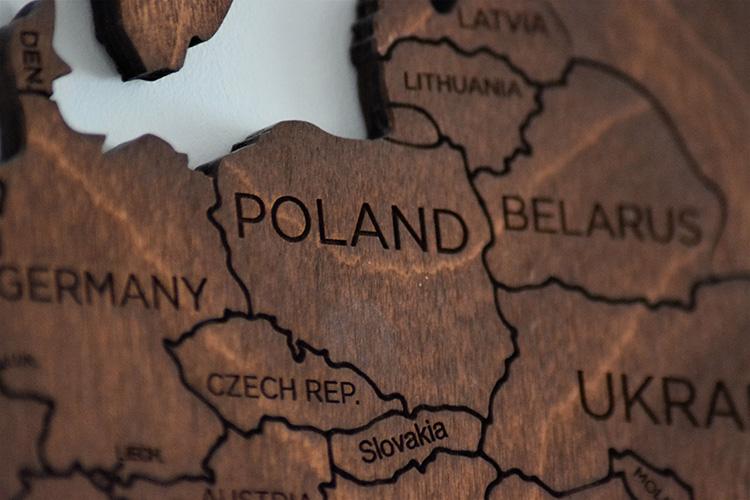PwC: 66% of consumers in Poland are concerned about inflation
Two-thirds of consumers in Poland (66%) are concerned about inflation, and when making a shopping choice, the consumer is first guided by the financial aspect, followed by the health aspect (44%) and finally by climate issues (25%), according to a report by Strategy& in Poland acting for PwC. Poles expect an increase in consumer spending in every retail category.
According to the report "Optimism only where the price is low - attitudes and shopping behaviour of Polish consumers", promotions and price cuts attract almost half (47%) of consumers shopping online, making an effective promotional policy the most valued element of the offer. While shopping in stationary shops remains the most popular sales channel (16% of consumers use it daily, 21% weekly and 25% monthly), at the same time online channels are becoming increasingly popular.
Polish consumers are keen to use artificial intelligence to recommend products (45%), but do not trust it enough to entrust it with more important tasks. Most consumers are concerned about their privacy and data security (81%), which is the strongest driver of distrust in technological solutions, it was reported.
"The beginning of 2024 has brought a change in economic conditions - we are registering the lowest levels of inflation in three years, which, however present in the numbers, may not necessarily be immediately perceived by consumers. Poles are invariably price-sensitive, but now, due to expected inflationary increases, they are looking for promotional bargains and often prioritise the financial aspect over the health aspects. Despite declarations of commitment to climate protection, this commitment strongly melts away when it means a noticeable impact on the household budget and then environmental criteria recede into the background. Although a significant proportion of consumers are in favour of personalised advertising on social media, citing it as the best channel to reach them, they are still sceptical about AI-based solutions, where at times the level of integration of artificial intelligence exceeds consumer confidence in its use," said PwC Poland partner and leader of the retail and consumer goods team at PwC CEE and PwC Poland Mieczysław Gonta.
"The contemporary Polish consumer is characterised by a practical approach to spending, a readiness to use new technologies or social media. This also heralds many challenges for both producers and retail chains, who, in order to succeed in reaching and winning customers in a modern, dynamic environment, need to understand changing consumer preferences or new shopping paths and build their strategy on this basis," added Strategy&'s managing partner in Poland Krzysztof Badowski.
According to the report, Polish consumers prefer modern forms of shopping more than the rest of the CEE region. On a monthly basis, 59% shop via mobile devices and 55% via PC, which exceeds the CEE average of 50% and 47% respectively. Social media is the most effective channel to reach customers, especially through personalised advertising. The success of the use of chatbots in customer service may be further enhanced in the near future by the wider use of AI tools for personal use by consumers. Despite the rapid development of artificial intelligence, some consumers are still sceptical about interacting with AI. Potential reasons for this scepticism include privacy concerns (81%) and a lack of confidence in AI's ability to find optimal solutions (81%) and fully understand the consumer's personal needs (70%).
Polish consumers are attracted to online shopping by promotions (47%), while convenience is most important to CEE consumers (43%). Promotions ranked highest among Polish consumers' preferences, far outweighing their importance compared to the CEE average, where speed of delivery is a priority, and promotions ranked third (31%), just after access to verified product reviews (37%), indicating their cautious approach to online shopping channels and less trust compared to other shopping methods. Environmental issues were ranked as the lowest priority both in Poland (16%) and in the entire CEE region (12%), reflecting the low position of these issues in the hierarchy of values, the report indicated.
Polish consumers are willing to spend on average 9.9% more on climate-friendly products. 83% of consumers perceived climate change-related disruptions in their daily lives, and a third perceived it to a great extent. At the same time, to reduce the impact on climate change, more than 5 in 10 consumers are changing their habits, buying more sustainable products and taking care of their consumption levels, it was also reported.
PwC surveyed 20,662 consumers in 31 countries and territories in January and February 2024. From the Central and Eastern European region, responses were collected from 6 countries: Czech Republic, Hungary, Poland, Romania, Slovakia and Ukraine from a total of 1,681 respondents. From Poland, 370 people took part.
Source: PwC and ISBnews









